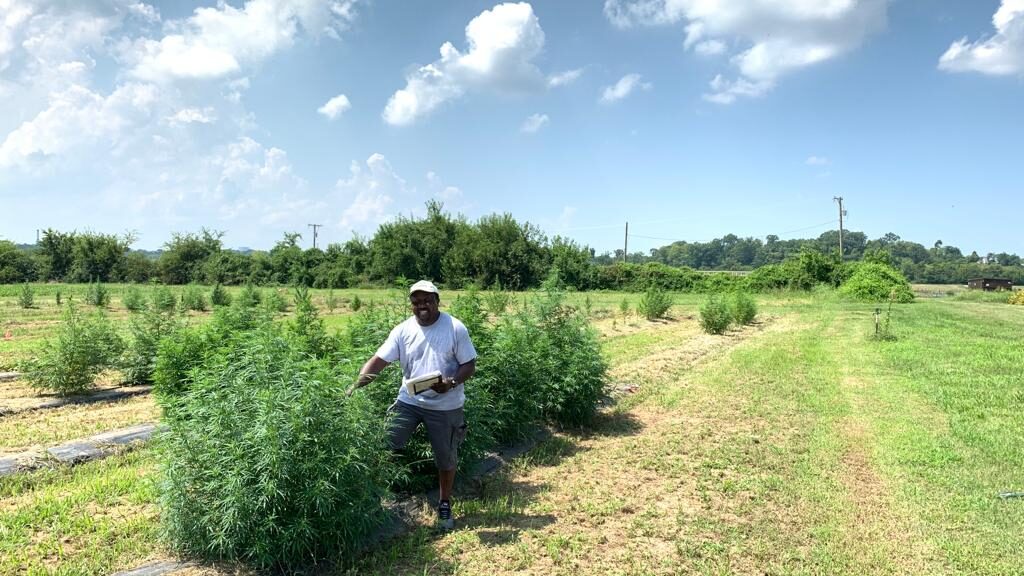NASHVILLE, Tenn. (TSU News Service) – Tennessee State University has received nearly $5 million in a hemp research grant, an investment that could make the state of Tennessee the number one grower in the Southeast region. The U.S. Department of Agriculture (USDA) announced the investment this week, awarding the grant to the College of Agriculture towards a new partnership for a Climate-Smart Fiber Hemp Project.
This investment for sustainable hemp fiber research will promote market development of industrial hemp supply as a climate-smart commodity through incentives to underserved Tennessee growers enrolled into the program.
Dean and Director of Research/Administrator of Extension Chandra Reddy said the department is excited to support hemp producers in the state, particularly with climate smart production practices.
“We have been at the forefront of identifying appropriate hemp varieties to grow in Tennessee and have been facilitating producers’ meetings on our campus,” Reddy says. “This multi-million-dollar project strengthens our Center of Excellence focusing on developing Climate Smart practices in managing Natural Resources, Renewable Energy, and Environment.”
The hemp project is a collaborative initiative to expand the production of industrial hemp as a climate-smart commodity, evaluate its greenhouse gas benefits, and promote the value of market development to a cross-section of production agriculture, including historically underserved producers across the state of Tennessee.
The project is led by Dr. Emmanuel Omondi, Assistant Professor of Agronomy and Industrial Hemp Extension Specialist.
Omondi says the greatest percentage of funds will be used to provide support and incentives to historically underserved farmers owning up to 500 acres to grow fiber hemp. The fiber hemp will then be processed and supplied to the motor vehicle industry as raw materials for manufacturing critical motor vehicle parts such as fabrics and bioplastics, he says.
“Funds will also be used to continue research into the best management agronomic production practices such as crop rotations, reduced tillage, alternative sources of fertilizers, and good genetics for Tennessee.”
Omondi said he is excited about the opportunity and looks forward to having a, “strong team of multidisciplinary partners who are totally committed to the successful execution of this project.”
TSU alum Frederick Cawthon, President of Hemp Alliance of Tennessee (HAT), who is a key partner within the project, said the overall goal is to create opportunities for underserved Tennessee growers.
“Tennessee can become the leading producer of hemp in the Southeast United States,” Cawthon said. “It’s a proud moment in my career to work alongside my alma mater to create opportunities for Tennessee’s diverse hemp producers. We are committed to growing this industry responsibly, and we encourage all industries to examine how they can utilize this climate-smart and regenerative raw material.”
In collaboration with TSU for the project is HAT, University of Tennessee (UTK), and the Tennessee Department of Agriculture (TDA) to address the global challenges posed by climate change.






